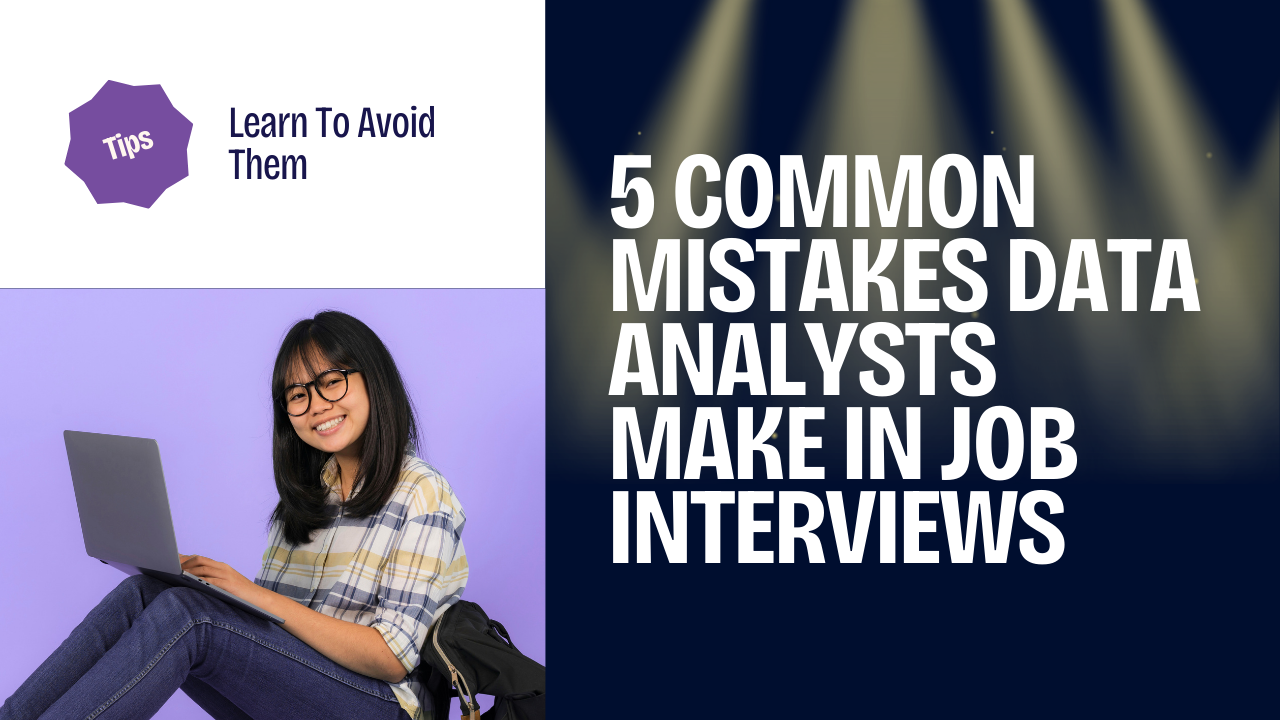(And How to Avoid Them)
Job interviews don’t have to be terrifying. Half the time, people make them harder than they need to be. Don’t overcomplicate things, be CONFIDENT. Here are five common pitfalls aspiring data analysts fall into during interviews and how you can sidestep them like a pro.
1. Be Truthful (Seriously, Just Be Honest)
Some people think they can outsmart the system by throwing in fake jobs or claiming expertise in software they’ve barely heard of. News flash: You won’t get far.
Hiring managers can sniff out exaggerations from a mile away. If your resume gets you through the door, your interview answers will expose the gaps. And if you somehow make it past the interview, your first few weeks on the job will definitely give you away. Trust me, they always figure it out.
Tip: No job will match your skills 100%. Look for roles where you meet at least 80% of the requirements. For the rest? Don’t fake it – frame it. Instead of pretending you know Tableau inside out, say:
“I’m familiar with Tableau and have some exposure to it, but I haven’t worked extensively with it yet. However, I’m a quick learner and eager to build my skills.”
This sets clear expectations and shows honesty while keeping you in the running.
2. Forgetting the STAR Method (Your First Date with the Employer)
If you’re answering interview questions with just “yes” or “no,” congratulations, you’ve just killed the conversation.
When an interviewer asks, “Tell me about a time you solved a challenging problem,” they don’t want a one-liner. They want a structured response that highlights your problem-solving skills.
Tip: Use the STAR method:
- Situation – Briefly set the context.
- Task – Explain the problem or goal.
- Action – Highlight the steps you took.
- Result – Share the outcome (bonus points for measurable impact!).
For example, if asked about Looker Studio, instead of saying “Yeah, I used it,” say:
“We had monthly reporting tasks where I used Google Sheets to create reports in Looker Studio. I designed dashboards to visualize branch sales, which helped the team identify the highest-performing locations.”
Much better, right?
3. Don’t Downplay Yourself (Your Work Counts!)
Many aspiring analysts think their experiences aren’t “good enough.” That volunteer work you did? The school event you organized? It all counts.
Tip: University projects and side gigs are cheat codes for landing your first data job. Hiring managers know entry-level candidates won’t have years of corporate experience. The trick is to connect your past work to the role.
Instead of saying “I don’t have real-world experience,” try:
“In my university project, I analyzed customer feedback data using Python to identify common pain points, leading to a set of recommendations for the company.”
Boom. Now you sound like an analyst.
4. Failing to Research the Company (Big Red Flag)
Walking into an interview without knowing the company is like showing up to an exam without studying – you’re setting yourself up for failure.
Tip: Do your homework. Check out their mission, recent projects, tools they use, and (most importantly) the job description. Read it. Then read it again.
Go further and watch their YouTube videos, read case studies, and check out their LinkedIn. Mentioning a company’s recent achievement in an interview makes you stand out.
Example: “I saw that your team recently launched a new analytics dashboard for retail clients. How has that impacted decision-making?”
Now, you’re not just another applicant. You’re an engaged candidate.
5. Not Asking Questions (A Missed Opportunity)
Your interview is almost over, and you’re relieved… but then comes the final test: “Do you have any questions for us?”
Saying “No, I think you covered everything” is the WORST response. This moment isn’t just for them but it’s for YOU to gauge if this job is the right fit.
Tip: Prepare 3-4 solid questions and use 1 or 2, depending on time. Good ones include:
- “What kind of projects does the team work on?”
- “How many people are in the team I’d be joining?”
- “What does success look like in this role over the first 6 months?”
Asking smart questions signals that you’re serious about the role—and helps you determine if it’s somewhere you actually want to work.
Conclusion
Interviews don’t have to feel like an interrogation. Keep it real, structure your answers, showcase your experience (even if it’s from uni), research the company, and engage with the interviewer. Nail these five things, and you’ll be miles ahead of the competition.
Now go get that job!
